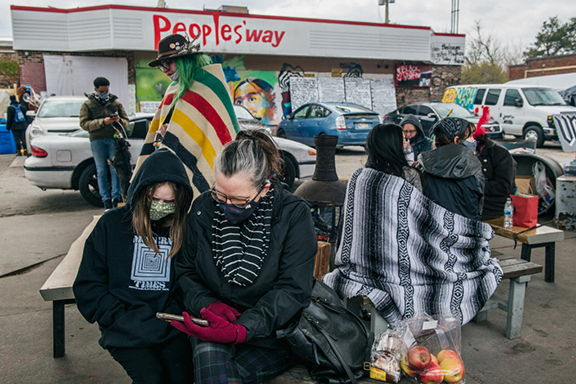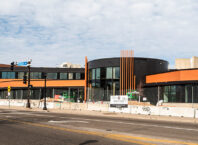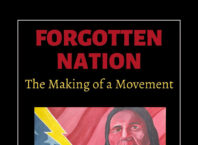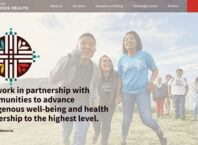
By Lee Egerstrom
With Minneapolis on pins and needles during the recent Derek Chauvin murder trial, the city reached out to seven community organizations to form community patrols to help keep the peace and lessen tensions.
The Native American Community Development Institute (NACDI), in the heart of the Native community in the Phillips Neighborhood, was one of them. The nearby Corcoran Neighborhood Organization and T.O.U.C.H. Outreach was another, and the We Push for Peace group, which has extensive operations within Phillips and the Cedar-Riverside area of Minneapolis as well, was also a patrol partner.
In announcing the plan, the city said it had awarded about $1 million to the seven groups in contracts that will run through the rest of the year. Each organization had submitted budget proposals for up to $175,000 to provide patrols and offer outreach assistance for the city.
George Floyd, a Black man, died while in police custody on May 25 last year. His death, while under a knee of former police officer Chauvin, was captured on bystander video and shown around the world.
It triggered civil rights activity throughout the United States and in some parts of Europe as well. It also caused unrest in Minneapolis and St. Paul, resulting in looting, fires and damage to property.
A jury on April 20 found Chauvin guilty of second degree and third degree murder, and of a lesser manslaughter charge as well. These verdicts were well received by most groups in Minnesota and especially by the ethnic communities. A feared reaction like the damage that followed Floyd’s death a year ago didn’t happen.
“Although the trial of former Officer Chauvin may have concluded, the trauma it evoked in our communities continues to have an impact,” said Sasha Cotton, director of the city’s Office of Violence Prevention (OVP).
She said creating community patrols with cultural and community organizations was important for OVP to work with the city’s diverse communities.
“We understand that tension in the city was and remains high,” Cotton said in a statement for The Circle.
“One of the best ways to address tension, stress and trauma is to ensure that people are getting resources and information from within their own cultural and geographic communities, which was one of the major focus areas of our community patrols.”
The Chauvin trial is far from the end of the trauma that began with the death of Floyd a year ago.
Sentencing for Chauvin is set for June. Legal experts anticipate the verdicts will be appealed. And a trial for three other former Minneapolis police officers who were with Chauvin when Floyd was murdered is set to begin in August.
All can be flashpoints and lead to more civil unrest.
“Keep in mind, we have shootings all too often and other acts of violence in our communities,” said Trahern Pollard, founder and chief executive of the We Push for Peace groups that was started in 2004.
“We need to mediate problems for victims’ families; de-escalate problems in the community.”
Pollard said his group and the other six organizations are “boots on the ground” service providers.
“We were on the ground before the trial. We will always be there,” he said.
Other organizations in the community patrols include A Mother’s Love, Center for Multicultural Mediation, C.E.O. (Change Equals Opportunity), and Restoration Inc. NACDI officials were not available for comment at the time of this writing.
Pollard, however, said the partnering groups have mediation assistance for their communities, have job training arrangements, and help provide information for people to access programs and find help for various needs.
Not everything that impacts communities within Minneapolis draws attention like the Chauvin trial. But Pollard said families and communities need help even when hurtful events do not make the news.
There is always something causing pain, he said. A lot of it has to do with unequal access to livable, sustainable jobs, he said. That has been made worse for poor, marginalized people during the COVID-19 pandemic.
People in general and especially young people need information about opportunities and where to get training, he said. To avoid problems common in many communities, “we need career training, not job training,” he said.
Communities face all sorts of violence and crimes where opportunities are scarce, he said. As a result, service and neighborhood groups need to be sources of information for finding opportunities for individuals as well as communities.
OVP’s Cotton said her office is maintaining its relationships with the community patrol organizations, and not only for sensational events like the recent trial. Patrols will be used to respond to critical incidences within their communities of expertise, she said. They may be needed to assist communities in preparing for upcoming trials such as officer involved shootings. And, she said, they may be used to support community understanding of COVID-19 resources as well.






